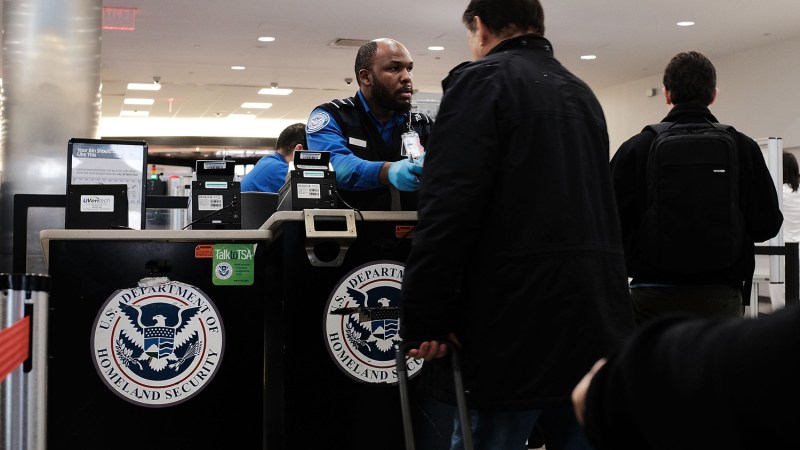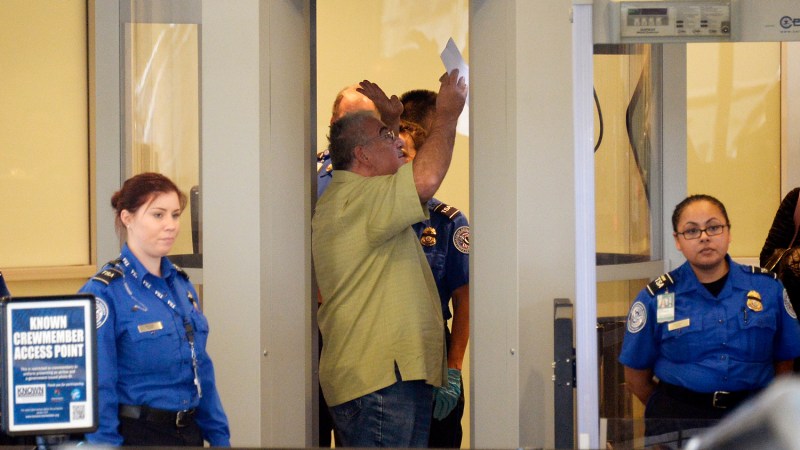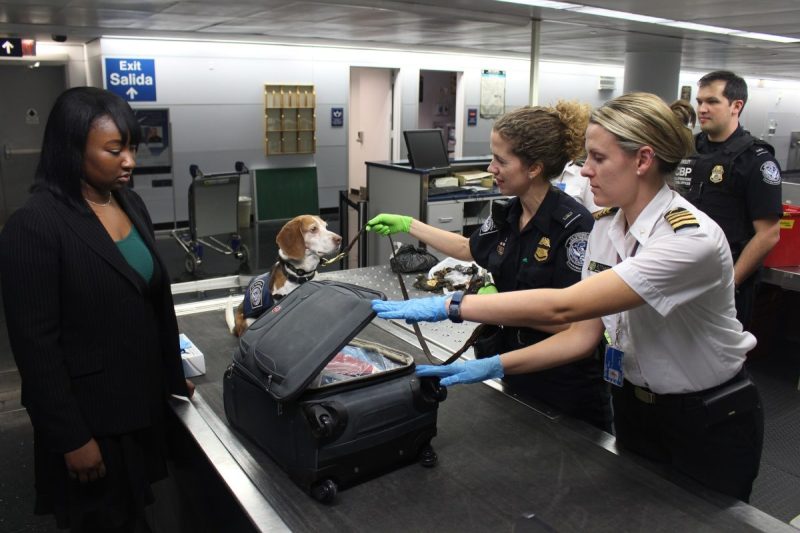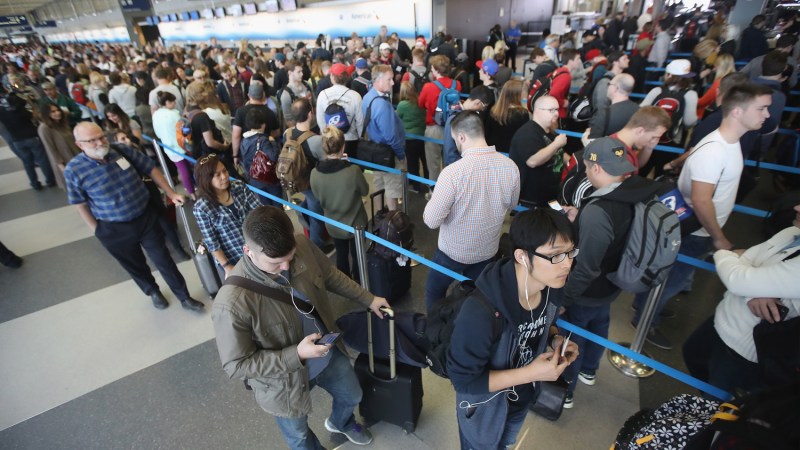Modern air travel kind of … sucks. When we think it can’t get any more inconvenient, uncomfortable, and just plain awful, the airlines and the TSA find ways to make it even worse. So, why make it harder on yourself than it has to be?
One thing you can do to help breeze through the airport on your next trip is to look and act like a “model” passenger. The goal is to make yourself as unproblematic as possible, so you can coast through those security checkpoints without any unnecessary snags. That means knowing what not to do. Here are the things most likely to flag you as a potential problem passenger at airport security.
Things to avoid at airport security

Joking about bombs and terrorism
This one should be obvious to most people. The TSA doesn’t have a sense of humor about things like terrorism and bombs. However, some jokers seem intent on pushing the TSA to see just how seriously they take bomb threats. Steer clear of a surprise three-hour interrogation (and any bonus “intensive pat-downs”) at the airport by not talking about bombs, guns, knives, terrorism, or anything resembling violence. Just don’t.
Traveling bearded and alone

Sometimes, traveling solo is unavoidable. But, if you’re a lone guy, be prepared for extra scrutiny. It’s doubly true if you have a beard. We know, we know. It’s sad but true.
Criticizing the screening equipment and TSA personnel

Dealing with the TSA is an unavoidable fact of life for air travelers in the 21st century. It sucks for all of us. But complaining loudly about the fruitlessness of the security screening equipment and TSA personnel is not a soapbox you need to stand on at the airport. By all means, do so at your own peril. Just don’t be surprised if you receive the “extra special pat-down” treatment in front of your fellow citizens.
Traveling with coffee

Watch enough episodes of Locked Up Abroad, and you’ll know that traveling with large amounts of coffee is the mark of most smugglers (it’s an excellent, though obvious, way to throw off scent dogs). If you’re returning to the U.S. from South America and can’t help but bring back a few pounds of good ground, so be it. Just know that U.S. Customs and Border Protection officers (and their dogs) are likely to scrutinize you even more.
Not following protocol

The litany of things — liquids, loose change, laptops, throwing stars — that must be removed from your pockets and carry-on baggage at airport security is inconvenient. However, following the TSA protocol is a surefire way to make the process smoother for everyone involved. You’d be amazed at the contraband agents find in carry-on baggage every year. If you want to breeze through the checkpoint every time, know the TSA rules, and follow them to the letter.
Getting out of line

We mean this literally and figuratively. No matter what, be patient and go with the flow. Shifting lines might be wise at the grocery checkout, but it can be the mark of someone with something to hide at airport security. This is especially true if you’re standing in a line with a full-body scanner and suddenly decide to move to a different line with only a metal detector. Trust us, they’re on to your shenanigans.
Improper medical documentation

These days, with ridiculous baggage fees, we’re all trying to pack lighter and tighter (completely carry-on only, if possible). Tossing all your pills into one or two travel-sized bottles seems like a solid packing decision, but traveling with medication — especially prescription medicines — can be trickier than you think. At the very least, keep your pills in their original bottles and bring copies of the prescriptions for each drug you’ll be traveling with. If you’re headed overseas, brush up on the medication laws in your destination country. What’s legal in the U.S. may be restricted or outright banned (with heavy penalties, including jail time or worse, for possession) where you’re headed.
You can’t power on your laptop

This is one of the most overlooked requirements for air travelers, but the TSA clearly states that they can confiscate your laptop — or worse, deny you boarding — if they can’t turn on the device. Be sure to charge your laptop the night before your flight.
More red flags: Clothes matter

Flying used to be a very formal thing, people got dressed in their best clothes for their trip. Nowadays, it’s anything goes when it comes to what people wear on planes, it’s more common to see people in pajamas than suits.
Now, we’re all for wearing comfy clothes when we fly, especially on long or overnight flights. Who wants to wear a suit on a cross-country red-eye? But be warned, what you are wearing when you pass through airport security has the potential to raise red flags for TSA agents.
First, wearing baggy clothes could raise suspicion. Many times, if your clothes are too baggy, the scanners can’t see underneath them, which could lead to the dreaded pat-down search. Also, clothes with metal accents like studded jackets or even underwire bras, could bring extra scrutiny. Also, if you think you have the perfect T-shirt with a “hysterical” anti-TSA joke on the front, leave it at home, a shirt like that is a guaranteed fast pass to the extra body search line.
One last thing: If TSA agents see someone wearing obvious out-of-season clothes, like a heavy jacket in the summer, they will get extra screening due to the risk of concealed items under the clothes.




